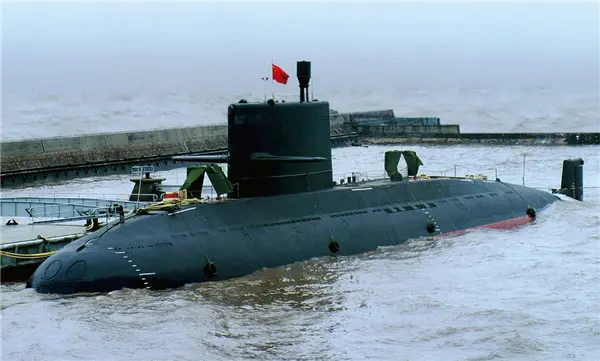By APD writer Chen Jiabao
BANGKOK, May 10 (APD) -- Since the Royal Thai Navy signed the contract for the purchase of the first of three submarines from China in Beijing on last Friday, Thailand's social media has been awash with doubts.
However, Thailand's ruling generals shun domestic criticism by forging more weapons deals with Beijing. The Royal Thai Army said on Tuesday that they will buy 34 armoured vehicles worth about two billion baht and another 11 VT-4 battle tanks from China, just four day after the submarine deal signed.
The navy has plans to buy three of the Yuan Class S26T submarines eventually from China at a total cost of 36 billion baht spread over 11 years. The "T" designates the version being sold exclusively to Thailand.
The price tag for the submarine fleet invited criticism over the lack of transparency in the purchase and their necessity in an era in which some say a regional conflict is almost unthinkable.
After reiterating that the submarines are necessary as Thailand's neighbouring countries already have them, Thai Prime Minister Prayut-Chan-o-cha refused to talk on the procurement any more.
Indeed, Prayut, the nation's former military chief and current head of its ruling junta, has said at a 2016 press conference that Thailand will buy submarines "not for battle, but so that others will be in awe of us".
Thairath, the newspaper with the highest circulation in the country, has echoed with the prime minister's response.
It said that for nearly seven decades since, the Royal Thai Navy has been unable to reclaim its glory.The gulf of Thailand is crucial to Thailand, as the trade volume in this water reaches 24 trillion baht(5.8 trillion U.S dollars) per year. After World War II,one of the Allies used to send its forces to blockade the gulf, a major sea lane relied on for trade and its natural gas deposits.
Thailand must boost protection of its vast maritime resources on both sides of the Indian and Pacific Oceans and to secure the sea-lanes of communication, Thairath said.
China has charmed the Thai navy with an armaments package and technology transfer that Western firms can’t match, meanwhile their weapons are cheaper than the Western ones, an important factor at a time when Thailand is coping with budget constraints, Thairath, the Pro-West opinion leader, said in a rarely cosy tone, adding that it needs to be underscored that Thailand, in fact, has been a very prominent recipient of Chinese weapon systems all through the decade of the 1980s and 1990s.
Meanwhile, since the May 2014 military coup masterminded by the current Thai prime minister, the US has frozen military ties with the Thai government; Washington consequently imposed legal restrictions on arm sales to the southeast Asian country, according to Chalermchai Sittisat, the Thai army commander in chief.
As this factor underscored, some observers viewed that no other country except China can provide such affordable and extensive security coverage and at the same time be willing to meet all Thai pre-sale demands as much as possible within its economic constraints at this juncture while the US, which has the capacity to provide assistance similar to China, has never paid sufficient attention.
Moreover, as the Thai government has been carrying out a diversification policy in military acquisition, the surge of arms deals with China sit well with the policy.
Chalermchai has pointed out that the Thai military is not in the midst of a "pivot" of its own towards China though he admitted that more arms deals will be sealed in the near future.
Suriya Pornsuriya, a former navy admiral, has described the deal with China as "an offer we can't refuse".
Chen Jiabao is the Thailand correspondent for APD news. Major in Thai, she's also a writer on Thailand issues with Xinhua News Agency.
 简体中文
简体中文

